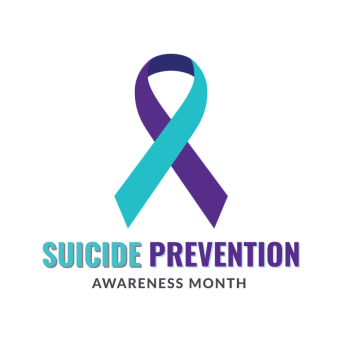The University of Nebraska Public Policy Center (NUPPC) is supporting several efforts to reduce suicide rates in Nebraska. Over the past three years, NUPPC has worked with University of Nebraska-Lincoln campus partners, including UNL Counseling and Psychological Services and the Campus Recreation Alcohol and Drug Education Program, to implement suicide prevention activities on campus.
We collaborated to design and implement a training program to increase awareness of associated with elevated suicide risk, what to do and saw when encountering someone at risk of suicide, and where to get help on campus. The new training was first used during the 2024-25 school year. NUPPC surveyed 502 training participants finding the training increased their knowledge and confidence about what to do if someone they know seems to be thinking of suicide. Learn more at caps.unl.edu/prevent-suicide.
As part of a co-operative agreement with the Centers for Disease Control and Prevention, NUPPC launched a multi-year focused media campaign in efforts to lower suicide rates—especially for men ages 25-64 whose rate is nearly twice that of other Nebraskans. The statewide media campaign includes broadcast television and radio ads, digital media ads, and print ads in newspapers around Nebraska.
To forward this effort, NUPPC is partnering with Nebraska Department of Health and Human Services, Nebraska's behavioral health regions, Nebraska Extension, and the Nebraska State Suicide Prevention Coalition. We are working closely with the behavioral health regions to strengthen suicide prevention efforts across Nebraska. Our work includes promoting lethal means security through education and the distribution of secure storage devices, offering gatekeeper trainings to help community members recognize warning signs and connect people to care, supporting suicide loss survivors through Nebraska Local Outreach to Suicide Loss Survivor (LOSS) Teams, expanding education for providers, advancing system-level improvements with evidence-based frameworks such as Zero Suicide, and promoting tele-behavioral health services to increase access to care in rural areas. Learn more at Nebraska Suicide Prevention.

